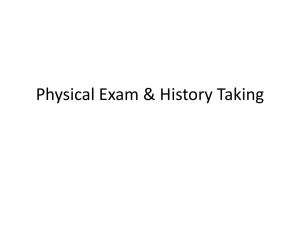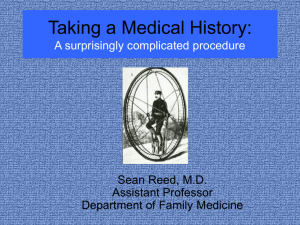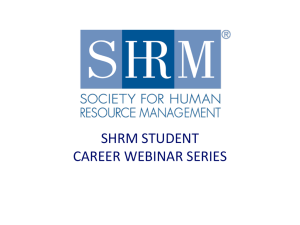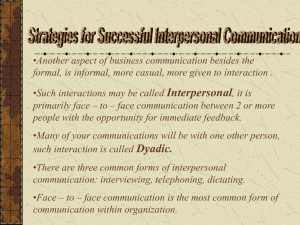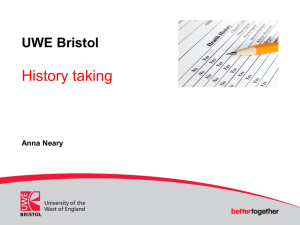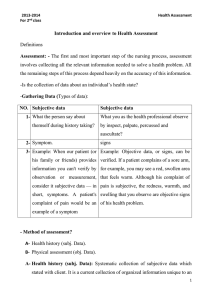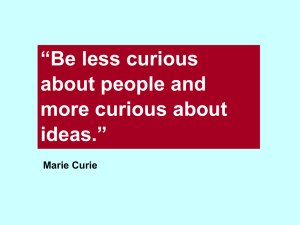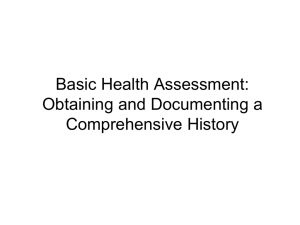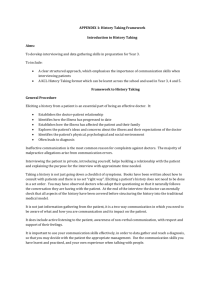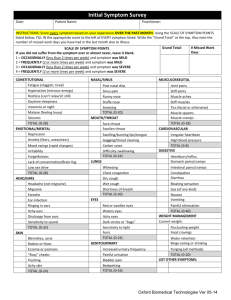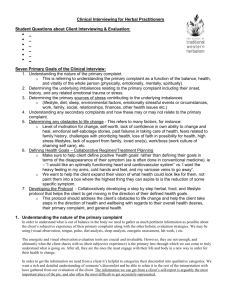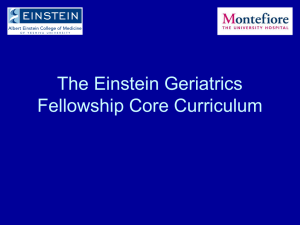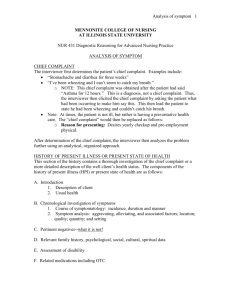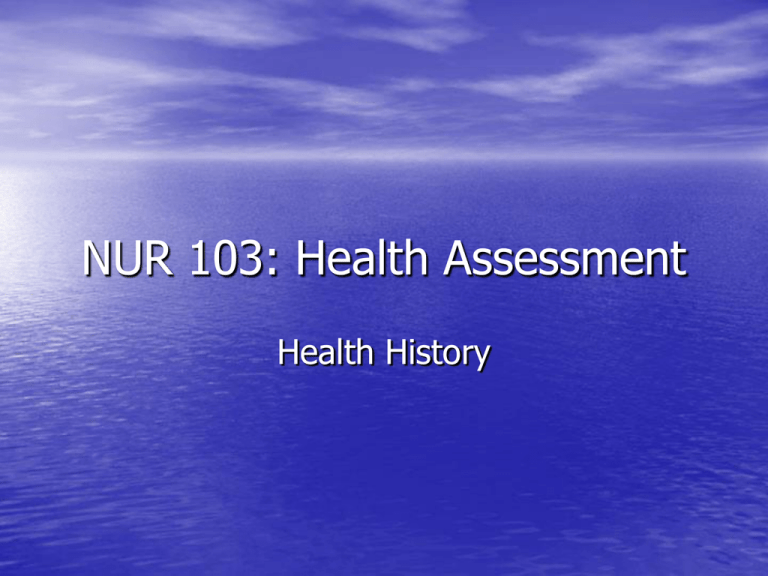
NUR 103: Health Assessment
Health History
Factors influencing the interview
• Approach
• Environment
• Confidentiality
• Note Taking
• Time, Length, Duration, Biases and
Preconceptions
Interview Contract
•
•
•
•
•
•
•
•
Time and Place
Introductions
Purpose
Length
Expectations
Presence of others
Confidentiality
Costs
Interview Approach
• Privacy
• Interruptions
• Physical Environment
• Dress
• Note taking
• Biases and misconceptions
Stages of the Interview Process
• Introduction
• Working ( subjective and objective
information)
• Closing or Termination
Therapeutic Interviewing
Techniques
•
•
•
•
•
•
•
•
•
Open ended questions
Closed ended questions
Facilitating
Using silence
Reflection
Empathy
Clarification
Interpretation
Summary
Non-Therapeutic Interviewing
Techniques
• Biased Questions
• False Reassurance
• Giving Advice
• Why Questions
Elements of a Comprehensive
Health History
•
•
•
•
•
•
•
•
Biographic Data
Chief complaint
History of present illness (symptom analysis)
Past medical history (family history)
Review of systems
Functional assessment
Alternative therapies
Cultural influences
Elements of a Comprehensive
Health History
• Biographical data
Name address
age
birthday, year of birth
sex
marital status
race
ethnic origin
occupation
phone number
Elements of a Comprehensive
Health History
• Chief Complaint
This is a brief spontaneous statement in the
person’s own words that describes the reason
the client is seeking medical care. What ever the
client states is the reason for seeking care is
recorded, and enclosed in quotation marks to
indicate the client’s exact words.
Elements of a Comprehensive
Health History
• History of Present Illness ( symptom analysis)
1. For a well client, this is a short statement
of general health
2. For the client who is experiencing alterations
in health status, this is a chronological
record of the reason for seeking care and
should include a symptom analysis
Elements of a Comprehensive
Health History
• Past Medical History should include:
Childhood illnesses
Accidents or injuries
Serious or chronic illnesses
Hospitalizations
Operations
Obstetric history
Immunizations
Last examination date
Allergies
Current Medications
Family History
Elements of a Comprehensive
Health History
• Components of a Review of the Systems
General overall state of health
Skin
Ears
Hair
Head
Eyes
Nose and sinuses
Mouth and throat
Neck
Breast and axilla
Elements of a Comprehensive
Health History
• Components of a Review of the Systems
Respiratory
Cardiovascular
Peripheral vascular
Gastrointestinal
Urinary
Male/female genital
Sexual health
Musculoskeletal
Neurologic
Hematologic
Endocrine
Health Promotion
Elements of a Comprehensive
Health History
• Components of a Functional Assessment
Self esteem/Self concept
Activity/Exercise
Sleep/rest
Nutrition/elimination
Interpersonal relationships
Coping and stress management
Personal habits
Environmental Hazards
Occupational health
Alternative therapies
Cultural influences
Elements of a Comprehensive
Health History
• Documentation Guidelines
– Normal health findings
– Alterations in health findings




